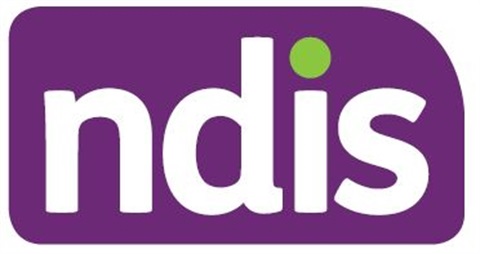The National Disability Insurance Scheme (NDIS) is an example of a brand new model aiming to facilitate the lives of disabled people and transform the paradigm of care in Australia. This scheme is active within the busy living area of Parramatta to improve the quality of life and existence of disabled persons and give a solid and commendable boost to their families and carers.
This support is essential because caregivers also go through physical, financial and emotional stress. Here is a breakdown of the NDIS ecosystem to illustrate how NDIS providers in Parramatta address such challenges:
1. Personalised Care Plans
Finally, the NDIS plan focuses more on developing individual care plans aimed to cater for the specific needs of disabled persons. In this case, in Parramatta, such prepared plans can be designed with the participation of the caregiver and families involved. The integration of these various plans allows for consideration of not only the person’s requirements but also the consideration of the other carers who will utilise the plans each day.
Such individualised schedules contribute to facilitating care activities, minimising opacity, and, thus, improving the quality of care. They are embodied in a stable and predictable structure that assists both the individual and the family.
2. Respite Services
These services are one of the integral components offered to caregivers through the NDIS serving Parramatta. They are essential to caregivers as they provide some time off for the care receiver, thus contributing to non-emotional exhaustion.
Choices range from home care, where healthcare professionals are hired to attend to the person with a disability, to home care, where the everyday caregivers take a break and professionals come to the home to take over to residential care, in which the individual with a disability goes for some time to be cared for by experts.
Such flexibility enables caregivers to relax, have other unrelated businesses, or even get some rest, which is very important to their well-being.
3. Skill-Building Workshops
Recognising that knowledge is power, NDIS providers in Parramatta facilitate various workshops and training sessions for families and caregivers. These programmes aim to improve knowledge and skills in caregiving, from the fundamental care of disabled clients to the assessment and monitoring of other related health problems.
Education of this kind enables caregivers to be well informed to deliver the best that is needed in offering care; hence, it eradicates feelings of inadequacy or even fear of making mistakes. Enhanced skills lead to improved care outcomes and a more confident caregiving approach.
4. Support Coordination
The role of support coordinators is invaluable in the NDIS framework. In Parramatta, these professionals are navigators in the complex sea of NDIS processes and paperwork. They assist families in appreciating their NDIS funding, accessing services, and making the best decisions concerning their families’ care.
These employment activities are works that are usually time-consuming and cumbersome to handle by families with a disabled member of the family; through handling these logistical and administrative tasks, the support coordinators ease out lots of burden from families, hence resulting in more time spent with the disabled family members.
5. STA Benefits in Sydney
Short term accommodation in Sydney provides essential respite for caregivers within the NDIS framework, offering them a much-needed break to rejuvenate and manage personal affairs. This service not only supports caregivers but also provides emergency and transitional housing for NDIS participants.
It ensures stability during sudden life changes, like home renovations or care gaps, enhancing the well-being of both participants and their families.
6. Enhanced Support and Relationships
Through STA, participants can engage in programs to foster independence and skill development, which eases the caregiving load and enriches family dynamics. Customised accommodations cater to specific needs, improving accessibility and comfort.
Additionally, these settings offer networking opportunities, allowing families and caregivers to connect, share experiences, and build supportive community ties.
7. Therapeutic Support
Therapeutic supports supplied by the NDIS in Sydney encompass a wide range of offerings, including physical, occupational, and intellectual fitness treatment plans. All these services are relevant to developing and nurturing people with disabilities and equally crucial to caregivers.
For instance, physical therapy allows a patient to move around and decreases the burden on the carers regarding physical work. At the same time, counselling helps families cope with the everyday psychological stress of caregiving.
8. Community Engagement
Another focus of the NDIS providers in Sydney is creating a supportive community environment. Through organised community events, support groups, and social gatherings, caregivers are offered the opportunity to meet others in similar situations.
These interactions can lead to shared experiences, emotional support, and the formation of networks that provide practical advice and camaraderie, reducing feelings of isolation often experienced by caregivers.
9. Technology and Innovations
New technologies and solutions may minimise the pressure on caregivers and make the process more efficient. The user’s consultants in Sydney support the use of assistive devices, which enhance the well-being of a person with a disability.
All these, ranging from a communication aid to an environmental control system, will reduce the degree of dependence on a caregiver’s attentiveness, thereby providing people with disabilities with a more independent life and, in a way, lowering the daily load on the caregivers.
In a Nutshell
The NDIS infrastructure in Parramatta includes a comprehensive and holistic method, addressing the desires no longer only of the individual with a disability but also of individuals who rely upon and aid them. With the NDIS’s support in managing the practical, emotional, and logistical aspects of caring for individuals with a disability, disability care is promoted as a shared responsibility facilitated by various professions and community services. Enforcement of these laws benefits all citizens, and this consequently results in a society that embraces everybody.

